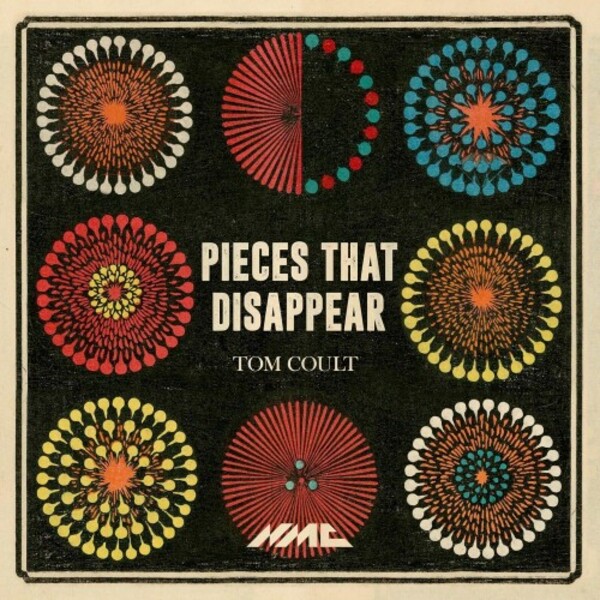COULT 'Pieces that Disappear'
View record and artist detailsRecord and Artist Details
Composer or Director: Daniel Pioro
Genre:
Orchestral
Label: NMC
Magazine Review Date: 01/2025
Media Format: CD or Download
Media Runtime: 73
Mastering:
DDD
Catalogue Number: NMCD261

Tracks:
| Composition | Artist Credit |
|---|---|
| Three Pieces that Disappear |
Tom Coult, Composer
BBC Philharmonic Orchestra Martyn Brabbins, Conductor |
| Beautiful Caged Thing |
Tom Coult, Composer
Andrew Gourlay, Conductor Anna Dennis, Soprano BBC Philharmonic Orchestra |
| Pleasure Garden |
Tom Coult, Composer
BBC Philharmonic Orchestra Daniel Pioro, Composer Elena Schwarz, Conductor |
| After Lassus |
Tom Coult, Composer
Andrew Gourlay, Conductor Anna Dennis, Soprano BBC Philharmonic Orchestra |
Author: Pwyll ap Siôn
As suggested by this album’s title, Tom Coult’s compositions often engage with presence and absence – especially how music shapes time by playing with memory in strange and unpredictable ways.
This sense of things being almost (but not quite) the same is vividly captured in the similarly titled Three Pieces that Disappear for orchestra and fixed audio, premiered in April 2023 by the BBC Philharmonic (with which Coult has been Composer-in-Association since 2021). The opening movement begins with falling scales in the orchestra’s upper parts against rising lines in the bass. Both elements undergo a kind of reverse metamorphosis, where traces of their musical presence is gradually erased. A lively second movement plays with the attraction of opposites, where vigorous and boisterous dancelike full-orchestra interjections contrast with slow-moving string lines. The movement’s middle section somehow manages to hold both elements in suspended animation, with the lively dance just about gaining the upper hand. In the final movement, a brass-band-like chorale is reduced to a glitchy repetitive loop before being further transformed into a forlorn chord pattern for solo strings that fades into the distance.
Coult’s ability to shapeshift his music in unexpected ways is also explored in the three-movement Pleasure Garden for violin and orchestra, where stabbing chords first heard on solo violin at the beginning of the first movement (subtitled ‘Dyeing the canal blue for Queen Victoria’) reappears in the third, this time in full orchestra, alongside brash cackling laughter in the brass and birdlike flourishes on woodwind.
If programmatic qualities lurk underneath the surface in Coult’s two orchestral works, fragments of words and phrases underpin the song-cycle Beautiful Caged Thing, as heard in the second song (‘Monstrous Marionettes’), where rhythmically and melodically disjunct lines suggest the disjointed movement of the marionette puppets. Both Beautiful Caged Thing and the six-movement After Lassus benefit from the input of soprano Anna Dennis, especially the latter, which draws on musical fragments from the eponymous composer. Dennis’s floating, soaring lines yield moments of restrained elegance and beauty. Yet, this being Coult, not everything is as it seems: the fourth movement (‘Justus cor suum’) relocates Lassus’s material in Dixieland jazz territory – the soprano’s playful melody pitted against a drunken ragtime duet that lurches woozily between trombone and clarinet.
Discover the world's largest classical music catalogue with Presto Music.

Gramophone Digital Club
- Digital Edition
- Digital Archive
- Reviews Database
- Full website access
From £8.75 / month
Subscribe
Gramophone Full Club
- Print Edition
- Digital Edition
- Digital Archive
- Reviews Database
- Full website access
From £11.00 / month
Subscribe
If you are a library, university or other organisation that would be interested in an institutional subscription to Gramophone please click here for further information.




